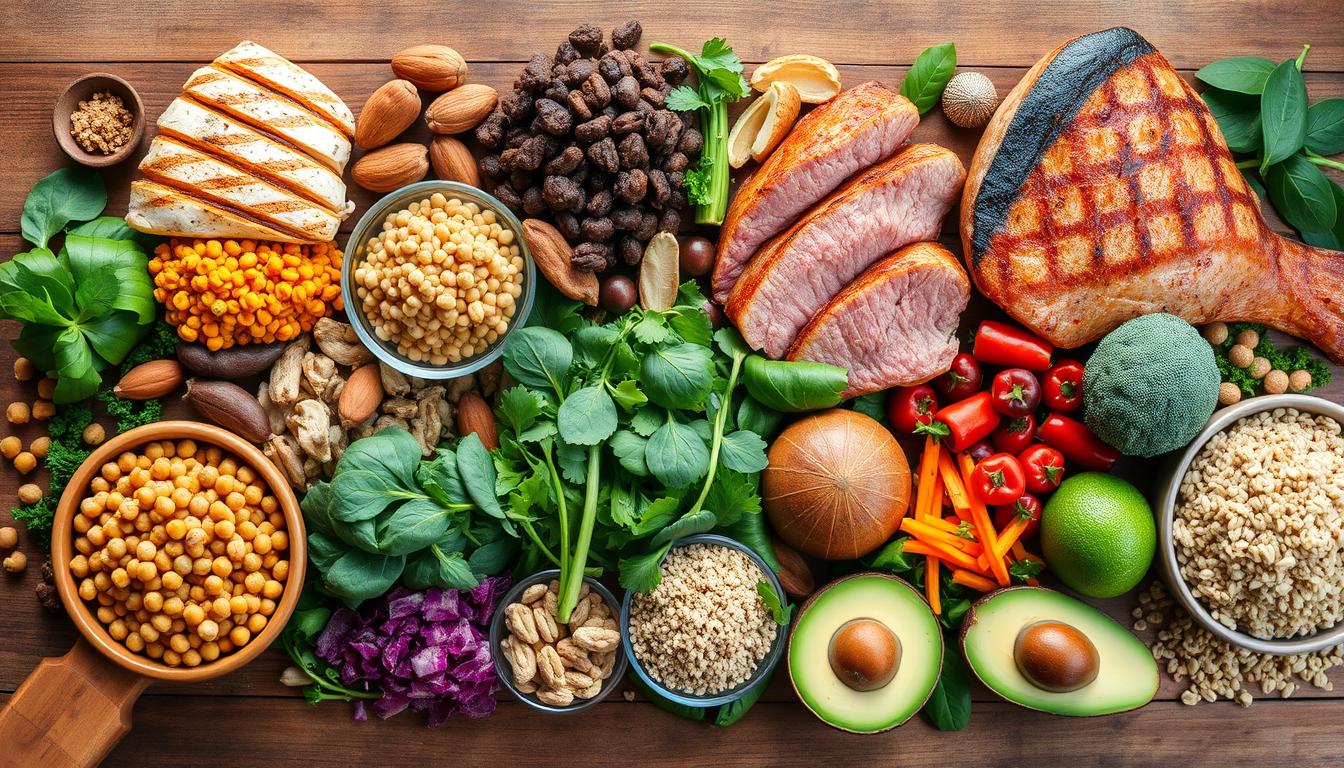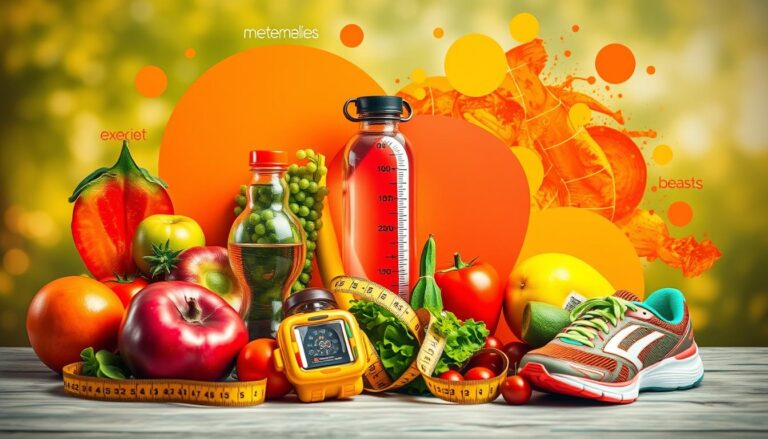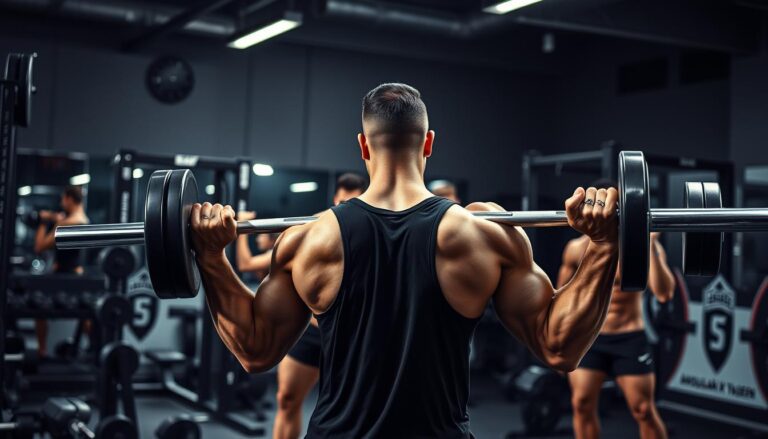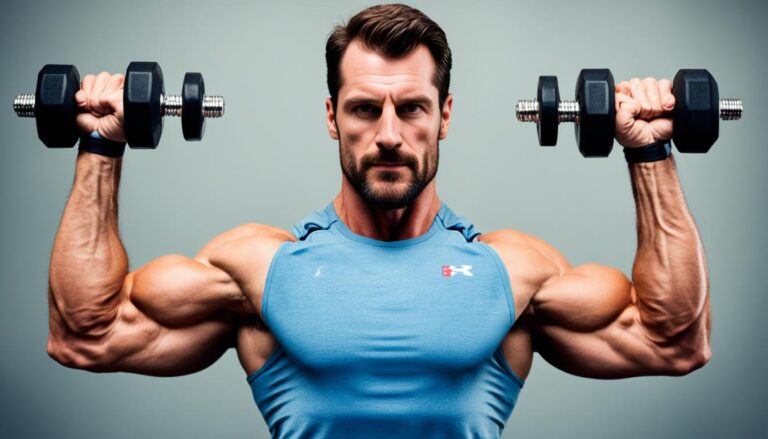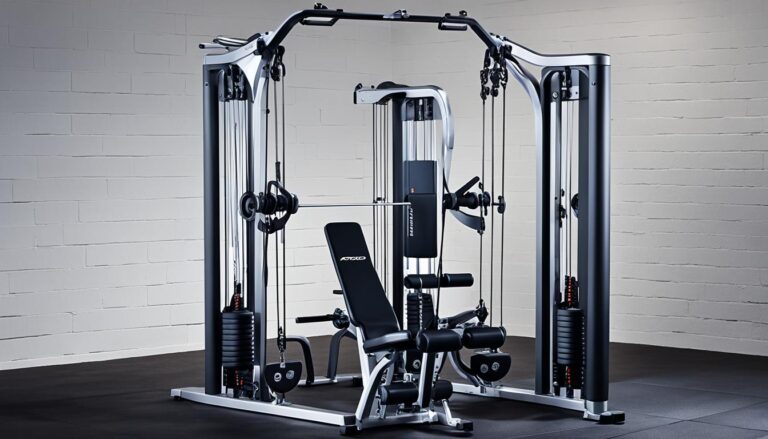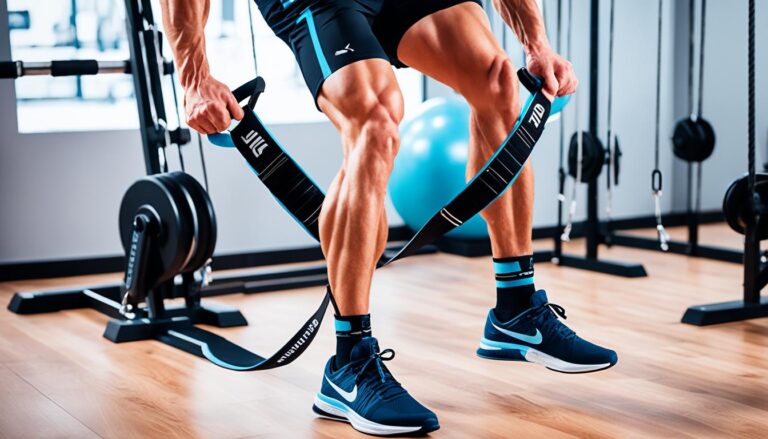Embarking on a journey towards muscle growth can be both exciting and challenging. One of the essential aspects of building a strong and muscular physique is ensuring that your diet is rich in protein. Protein-rich foods are crucial as they aid in muscle repair and synthesis, which are necessary for muscle-building foods. This guide delves deep into the best foods that support muscle growth, providing you with a comprehensive understanding of what to eat to achieve those gains effectively. Whether you are a fitness enthusiast or an athlete, incorporating these nutrient-dense foods will undoubtedly optimize your efforts towards a stronger, healthier body.
Key Takeaways
- Protein-rich foods are essential for muscle repair and synthesis.
- Nutrient-dense foods support muscle growth.
- Incorporate a variety of lean meats, fish, eggs, dairy, legumes, nuts, and seeds for optimal muscle-building.
- Understanding your protein needs can significantly enhance your muscle-building efforts.
- Both animal and plant-based protein sources are beneficial for muscle growth.
Introduction to Muscle-Building Foods
When setting out on a muscle-building journey, the first essential step is understanding the critical role of nutrition. Building muscle is not merely about lifting weights but also about consuming the right types of food to fuel growth and repair. The muscle-building nutrition supports the demands of bodybuilding and enhances overall fitness. This guide explores various types of food that contribute significantly to muscle development.
Different foods provide different benefits, and understanding this diversity is key. Proteins are vital as they serve as the building blocks for muscle tissues. Carbohydrates and fats, while sometimes overlooked, are also crucial as they provide the energy needed for intense workouts and recovery.
A balanced diet for muscle-building nutrition should include a mix of macronutrients. Here is a quick overview of what to include:
- Proteins: Lean meats, fish, eggs, and dairy products
- Carbohydrates: Whole grains, fruits, and vegetables
- Fats: Nuts, seeds, and healthy oils
By integrating these foods into your daily meals, you create a nutritional environment that not only supports muscle growth but also boosts fitness levels.
Embarking on this journey involves more than just knowledge; it requires careful planning and consistency. For those contemplating whether to work out at home or hit the gym for added motivation and equipment access, understanding the nutritional aspect remains fundamental. More insights on this can be found here.
Here is a detailed look at how specific foods enhance muscle growth:
| Food Type | Benefits |
|---|---|
| Lean Meats | High Protein, Amino Acids |
| Fish | Protein, Omega-3 Fatty Acids |
| Eggs | Complete Proteins, Essential Amino Acids |
| Dairy Products | Protein, Calcium |
| Legumes | Plant-Based Proteins, Fiber |
| Nuts and Seeds | Protein, Healthy Fats |
This foundational understanding of muscle-building nutrition sets the stage for success in any fitness or bodybuilding endeavor. The forthcoming sections will detail these food groups further, offering practical insights on maximizing benefits for muscle growth.
The Importance of Protein in Muscle Building
Protein is essential for muscle building, playing a crucial role in muscle repair and growth. As the body undergoes various phases of physical stress and recovery, the need for adequate protein intake becomes imperative. This nutrient is fundamental in triggering protein synthesis, the process through which muscles grow and strengthen.
Understanding Protein Needs
The body’s demand for protein increases significantly during periods of intense exercise and physical activity. During these phases, protein helps to repair damaged muscle fibers and aids in the growth of new ones. Consuming proteins rich in essential amino acids is particularly important, as these amino acids cannot be produced by the body and must be obtained through our diet. Ensuring an adequate intake of these nutrients is vital for effective muscle repair and overall muscle health.
Complete vs. Incomplete Proteins
Protein sources can be classified as either complete or incomplete based on their amino acid profiles. Complete proteins contain all the essential amino acids in adequate amounts and are typically found in animal products such as meat, fish, and dairy. On the other hand, incomplete proteins lack one or more essential amino acids and are often derived from plant-based sources such as legumes, nuts, and grains.
Balancing our intake of both complete and incomplete proteins is critical. Combining various protein sources can help ensure we get a full range of essential amino acids, which supports muscular strength and protein synthesis. For instance, pairing rice with beans provides a comprehensive amino acid profile beneficial for muscle health.
By understanding our protein needs and incorporating a variety of complete and incomplete proteins, we can optimize our diet for muscle growth, muscle repair, and overall well-being.
Lean Meats and Their Role in Muscle Development
In a rigorous bodybuilding diet, incorporating lean protein sources is paramount for optimal muscle growth and recovery. Lean meats like chicken breast, turkey, and beef not only deliver high-quality protein but also provide essential nutrients that facilitate muscle development. Among these, specific lean meats have distinct benefits that aid in muscle-building efforts.
Chicken Breast: A Staple for Muscle Growth
Chicken breast is a cornerstone in many bodybuilding diets due to its high protein content and low fat. A 3.5-ounce serving of chicken breast provides approximately 31 grams of protein, making it one of the leanest protein sources available. Consuming chicken breast regularly can help meet daily protein needs, crucial for muscle repair and growth.
Turkey: Low-Fat and High-Protein
Turkey is another excellent lean protein source, particularly valued for its low-fat content. A 3.5-ounce serving of turkey breast offers around 29 grams of protein and is lower in saturated fats compared to other meats. Incorporating turkey into a bodybuilding diet can enhance protein intake without adding unwanted fat, supporting lean muscle gain.
Beef: Rich in Creatine and Protein
Beef is notable for not only its high-protein content but also its richness in creatine. A 3.5-ounce serving of lean beef can provide approximately 26 grams of protein and a substantial amount of creatine, a compound that plays a critical role in energy production during intense workouts. Including beef in a lean protein diet can therefore support muscle performance and development.
| Meat | Protein (per 3.5 oz) | Fat | Additional Benefits |
|---|---|---|---|
| Chicken Breast | 31g | Low | Easy to prepare, versatile |
| Turkey | 29g | Very low | Rich in vitamins, low in calories |
| Beef | 26g | Varies by cut | Contains creatine, iron-rich |
Fish: An Excellent Protein Source
Fish is renowned for being an excellent source of protein and essential fatty acids. It’s a crucial addition to any diet focused on building and sustaining lean muscle.
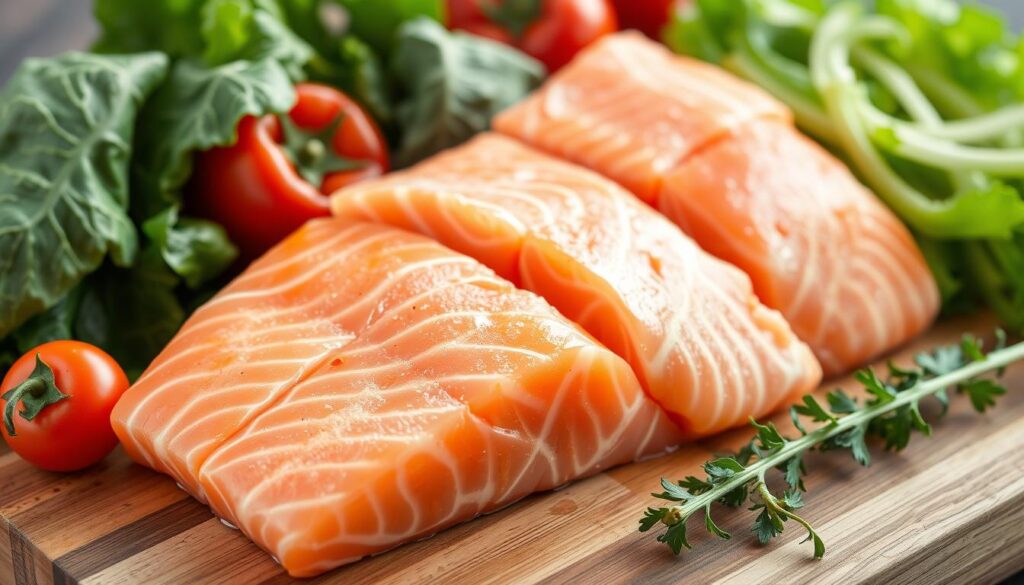
Salmon: Packed with Omega-3 Fatty Acids
Salmon stands out not only as one of the high-protein foods but also as a rich source of omega-3 fatty acids. These fatty acids play a vital role in reducing inflammation and improving heart health, making salmon a well-rounded choice for those aiming to build lean muscle efficiently.
Tuna: High-Protein and Low-Calorie
Tuna is another excellent choice in the realm of fish. It offers a remarkable amount of protein while remaining low in calories. This balance is perfect for anyone looking to enhance their intake of high-protein foods without consuming excess calories, therefore supporting the development of lean muscle.
Eggs: The Perfect Muscle-Building Food
Eggs are often hailed as the perfect food for muscle development due to their rich, high-quality protein content and a robust array of essential nutrients. Their status as a source of complete protein makes them indispensable in muscle-building diets. The entire amino acid profile in eggs supports muscle repair and growth, essential for anyone dedicated to fitness.
The numerous benefits of eggs don’t stop at their protein content. They are also a notable source of choline, a nutrient vital for various bodily functions such as muscle movement and metabolism. Incorporating eggs into your diet not only boosts your intake of complete protein but also provides a substantial amount of choline, which aids in muscle function and overall health.
Another essential nutrient found in eggs is biotin, commonly known for its role in promoting healthy hair and nails. However, its importance extends to muscle development as well. Biotin supports metabolic processes and helps in energy production, making it a crucial component for those engaged in rigorous workouts. For more insights on effective muscle-building strategies, check out this detailed guide.
Considering the myriad of benefits, it’s not surprising that eggs are a staple in the diets of bodybuilders and fitness enthusiasts. Their versatility in meal preparation ensures they can be included in various dishes, from breakfast omelets to post-workout snacks, making them an easy and accessible option for those looking to increase their protein intake.
Dairy Products for Muscle Growth
Dairy products play a critical role in muscle development and recovery. Incorporating items like milk, Greek yogurt, and cottage cheese into your diet can bolster your fitness regimen by providing essential proteins and nutrients that support muscle repair and growth.
Milk: A Post-Workout Favorite
When it comes to dairy and fitness, milk is often hailed for its ability to aid in post-workout recovery. Packed with both casein and whey protein, milk delivers a swift and sustained release of amino acids, crucial for muscle repair. Consuming milk after a workout can help replenish nutrients and foster muscle growth. Moreover, milk is not just about protein; it also offers a good balance of carbohydrates for energy replenishment.
Cable exercises for a strong backcan also benefit when combined with a dairy-rich diet for optimal gains.
Greek Yogurt: High in Protein and Probiotics
Greek yogurt is another powerful food in the context of dairy and fitness. It is exceptionally high in protein, which is vital for muscle growth and repair. Additionally, Greek yogurt contains probiotics that support digestive health, allowing you to absorb nutrients more efficiently. Perfect for breakfast or post-workout, Greek yogurt helps maintain a balance in gut flora while providing a substantial protein boost.
Cottage Cheese: Slow-Digesting Casein Protein
Cottage cheese is a favorite among bodybuilders and athletes due to its high content of casein and whey protein. The slow-digesting nature of casein makes cottage cheese an excellent snack before bedtime, as it provides a steady release of amino acids during the night. This constant supply aids in muscle recovery and growth, ensuring your muscles receive the nutrients they need even as you sleep.
| Dairy Product | Main Benefit |
|---|---|
| Milk | Rich in casein and whey protein; aids in post-workout recovery |
| Greek Yogurt | High protein content; contains probiotics |
| Cottage Cheese | Slow-digesting casein protein; supports overnight recovery |
Legumes: Plant-Based Protein Powerhouses
Legumes are exceptional sources of plant-based protein, making them essential in a vegan muscle-building diet. These nutrient-dense foods not only offer significant amounts of protein but are also rich in dietary fiber, aiding in digestive health and overall well-being.
Among legumes, lentils, beans, and chickpeas stand out due to their high protein content, providing a robust foundation for muscle growth. Lentils, for instance, deliver approximately 18 grams of protein per cooked cup. Beans, including black beans and kidney beans, offer around 15 grams of protein per cup, making them great choices for those looking to increase their plant-based protein intake.
Chickpeas, also known as garbanzo beans, are particularly versatile; they can be used in various dishes, including hummus and salads, while contributing around 14.5 grams of protein per cup. Additionally, incorporating legumes into your diet ensures a steady supply of essential minerals such as iron, magnesium, and zinc, which are vital for muscle recovery and growth.
For athletes and bodybuilders adhering to a vegan diet, legumes provide an excellent protein alternative that supports muscle mass and recovery. Their high dietary fiber content also promotes satiety and stabilizes blood sugar levels, making them a staple in a balanced diet.
| Legume | Protein Content (per cup cooked) | Benefits |
|---|---|---|
| Lentils | 18 grams | Supports muscle growth, rich in iron and fiber |
| Black Beans | 15 grams | Contains antioxidants, high in dietary fiber |
| Chickpeas | 14.5 grams | Versatile, promotes digestive health |
In summary, legumes are indispensable for those pursuing vegan muscle-building. Their combination of plant-based protein, dietary fiber, and essential minerals offers a comprehensive nutritional profile that supports both muscle development and overall health.
Nuts and Seeds: Nutrient-Dense and Protein-Rich
Incorporating nuts and seeds into your diet offers an impressive array of benefits, providing essential nutrients that support muscle building and overall health. These powerhouse snacks are not only rich in protein but also in healthy fats, which are crucial for hormonal balance and nutrient absorption. Whether you’re looking for a crunchy snack option or a versatile ingredient to enhance your meals, nuts and seeds are stellar choices.
Almonds: Great for Snacking
Almonds are an excellent snack option, especially for those seeking to build muscle. A handful of almonds provides a significant amount of protein, making them a favorite among fitness enthusiasts. In addition to their protein content, almonds are packed with healthy fats and essential nutrients such as vitamin E and magnesium, supporting both muscle recovery and overall wellness.
Chia Seeds: Rich in Protein and Fiber
Chia seeds stand out for their high protein and fiber content, making them a versatile addition to any diet. These tiny seeds are also abundant in omega-3 fatty acids, which play a vital role in reducing inflammation and supporting heart health. Incorporating chia seeds into your smoothies, yogurt, or oatmeal can significantly boost your protein intake while adding essential nutrients to your diet.
Walnuts: Good Source of Healthy Fats
Walnuts are another excellent option for those looking to increase their intake of healthy fats. Known for their high content of omega-3 fatty acids, walnuts contribute to better heart health and improved cognitive function. Additionally, their protein content supports muscle repair and growth, making them a valuable snack or ingredient in a balanced diet.
FAQ
What food builds muscle?
Various food options are proven to support muscle growth and development. Protein-rich foods such as lean meats, fish, eggs, dairy products, legumes, nuts, seeds, and whole grains all play significant roles in muscle repair and synthesis.
Why is protein important for muscle-building?
Protein is essential for muscle repair, protein synthesis, and overall muscle growth. It provides the body with essential amino acids needed during growth and recovery phases. Consuming a variety of protein-rich foods ensures that your body gets all the necessary nutrients to support muscle development.
What are complete and incomplete proteins?
Complete proteins contain all nine essential amino acids that the body cannot produce on its own, and are typically found in animal-based products like meat, fish, eggs, and dairy. Incomplete proteins, which are usually plant-based like legumes and nuts, lack one or more essential amino acids. A balanced diet including both types ensures adequate amino acid intake.
How do lean meats contribute to muscle growth?
Lean meats like chicken breast, turkey, and beef are excellent sources of high-quality protein with low fat content. They provide essential nutrients and compounds such as creatine, which supports energy production and muscle growth, making them ideal for a bodybuilding diet.
What are the benefits of fish in a muscle-building diet?
Fish like salmon and tuna are not only high in protein but also rich in essential fatty acids such as omega-3s. These acids help reduce inflammation, promote heart health, and aid in muscle recovery. Tuna is also a low-calorie, high-protein option perfect for lean muscle development.
Why are eggs considered the perfect muscle-building food?
Eggs offer a complete protein profile with all essential amino acids and are rich in nutrients like choline and biotin. Their versatility and high-quality protein content make them a go-to food for muscle development.
How do dairy products aid in muscle growth?
Dairy products like milk, Greek yogurt, and cottage cheese provide both whey and casein proteins, which support muscle recovery and growth. Milk is excellent as a post-workout beverage, Greek yogurt offers probiotics along with protein, and cottage cheese provides slow-digesting casein for sustained amino acid release.
Why are legumes important in muscle-building, especially for vegans?
Legumes are an essential source of plant-based protein and dietary fiber, making them ideal for vegan and vegetarian diets. They provide essential minerals and nutrients that support muscle growth while promoting overall health and digestive wellness.
What makes nuts and seeds good for muscle growth?
Nuts and seeds are nutrient-dense and rich in protein and healthy fats. Almonds are a great protein-packed snack, chia seeds offer high fiber and protein, and walnuts provide omega-3 fatty acids. These components are crucial for hormonal balance and nutrient absorption, supporting overall muscle development.

